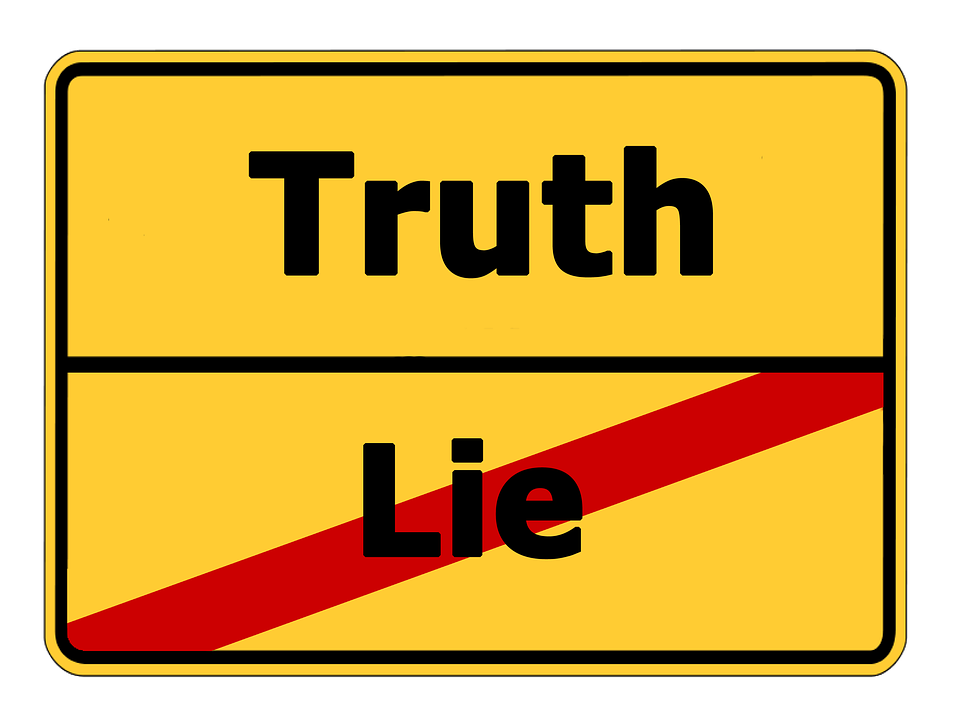Lying in a relationship can be a calamity. However, not all lies are the same and some are not worthy of attention. And then there are the others. Yet even a seemingly serious lie can be a constructive element and a starting point for a couple. As long as you react calmly. Follow this guide.
We all agree that we need to have our own secret garden. It is in this ultra-personal space that we can abandon ourselves to our thoughts and fantasies, and where we start to dream. But what happens when there is no more communication? Can we then talk about a lie in the couple when there is a deliberate omission?
If you think your partner is lying to you, how do you react? Do you have to accept everything? Should you forgive everything? Lying in a relationship can easily lead to negative and even destructive feelings. It can be taken as a betrayal and can lead to a loss of trust.
And yet, to have “little lies” would not be abnormal, quite the contrary…
A little lie leads to a big lie
The day a lie begins to exist in a couple, it is the beginning of a vicious circle that is often difficult to break.

As a general rule, you will tell yourself, and even convince yourself, that a tiny little lie will have no impact on your couple or your relationship. However, you will find, in conversation with your partner, that it is often necessary to add another lie to hide the first one or to make it more real. And so on and so forth…
It’s like your integrity. You won’t become dishonest overnight. You’ll become dishonest gradually, over time. And it all starts with the first odd one out. In this case, a first lie.
We must then distinguish:
- The unhealthy lie, the voluntary one, which can have a devastating effect on your relationship.
- The lie by omission which is more there to protect the other and, a little, for his own comfort 🙂
Lying by omission is forgetting to voluntarily say something to your partner in order to preserve his or her well-being.
An unhealthy lie is the lie that serves to camouflage a reality that you are ashamed of or that you simply don’t want to reveal because you know it will because you pain.
This type of lie always creates tension and suspicion in your partner.
Psychology of Lying in Couples: Why lie to your partner?

If lying in a relationship can be so devastating, then the question is why lie in love?
We can hide certain things to avoid inconvenience. However, we must not trivialize the lies that are repeated. The lie becomes a distortion of reality or a pathological mode of transaction necessary for the balance of all.
On a psychic level, a lie always means something. One can lie out of interest: to impress the gallery, to attract attention, to make friends, to express one’s need to be valued. You can also lie to get something or to get what you want
One can lie to protect or defend oneself from an anxiety-provoking situation. One can lie to avoid responsibility or in the face of anguish in front of an obstacle, for fear of failure, or crushed by a feeling of guilt.
A lie is non-pathological when it corresponds to a conscious falsification of reality. This behavior is consciously desired by the subject himself, in opposition to an established truth. The lie is born from the desire to deceive in an effective way, according to a determined objective. The lie is then carefully prepared and thought out.
Mythomania, on the other hand, refers to a recitative lie to which one adheres. Mythomania manifests itself mostly in adolescence. It is favored by our educational system, or by certain character disorders.
So why do we lie to our partners
Generally, you lie to your partner because you are not mature or strong enough to take responsibility for the consequences of your actions. You run away from the responsibilities that this can bring. You run away from your partner’s look and reaction.
The trouble is, a relationship without trust can’t work.

So the best thing to do is not to lie. Or, failing that, to lie only by omission and, above all, never to make an unhealthy or huge lie.
In an ideal and perfect world, you will never lie to your partner. But perfection is not of this world. So the main thing is:
- to be honest enough to limit themselves to lies by omission and not to abuse this easy solution
- To be brave enough to eventually confess his lie.
So how does it feel to realize that everything about a particular relationship is a lie?
“The grief and the sense of loss are deep. You want to curl up in a ball – fetus – not wanting to come out and not being able to face the world because you are in so much pain.
You find yourself constantly repeating in your mind all the red flags that your instinct was trying to point out to you but that love made you want to ignore.
And you stay awake until the wee hours of the morning, always dizzy, shocked, confused, sad and angry, unable to sleep, filled with the loneliness and brutality of the emotions you feel.
All this time you are looking for answers, help, peace and solutions – from the cosmos, from God, from your dead mother and grandmother, from the spirit world, from the extraterrestrials, from all those who are “out there” and who are willing to listen, deep down.
Perhaps they can feel your pain and give you the answers you desperately seek, helplessly, in the quiet of the night, when you can actually hear and feel your wounded heart.
While the person who lied and deceived you has been sleeping soundly for hours, of course.”
Melissa Johnson,
“I feel terrible. At every moment, even the smallest touch and the smallest joke comes back to you like a movie in your head. You feel depressed and lonely. All you ask is, “Why me?” Since you liked it at first, you don’t believe the truth, you run away from it, you try to calm your brain and think all the positive thoughts. You soon realize that it’s true. It now depends on the mental state of the person; few people can try to hurt themselves physically or beat the other person by realizing the truth. The common phenomenon is crying and crying a lot. A lot, I mean!”
Aditi Prabha
Understanding the spouse’s lie
There are basically 2 ways to react to a lie.
The first way is to get carried away, to rush into the gurneys and provoke a good couple fight. Depending on the situation, reacting this way is understandable. And we must admit that it can do some good: For all that, we have to admit that it is not the constructive one.

The second way is much more constructive…
Instead of simply condemning this act, why not see this as an opportunity to improve your relationship?
Of course, your spouse’s lying makes you angry, frustrated and disappointed. But usually the liar doesn’t want to hurt his or her partner. He either wants to protect his partner or he wants to protect himself.
How to prevent and deal with a spouse’s lie?
In order to prevent the unfortunate consequences of a lie and to defuse a possible conflict in your relationship, there are a few methods to prevent the lie from getting bogged down:
- trust the good faith of your partner
- Say what you think and invite your partner to do the same.
- give constructive criticism
- Prevent the other person from brooding over his thoughts by inviting him to tell you what he finds frustrating.
We don’t always talk about forgiving your spouse’s lie. However, in order for this unfortunate episode to be useful, and to prevent others, you must try to understand the roots of this gap in your communication as a couple.
Tell your partner that:
- you don’t want to offend him;
- you want to understand its needs;
- You’re ready to hear anything that might upset him or her.
Be considerate. And watch your partner’s non-verbal communication: if he or she crosses his or her arms, lowers his or her head, looks away when you talk to him or her, try to understand what’s wrong.
Conclusion
In short, we all lie, at one time or another, to those around us, for a variety of reasons. The important thing is to react constructively and in proportion to the seriousness of the lie.
When the lie suits you, you pay less attention to it. But when it’s within your relationship, always make sure you look for the origin and understand what motivated your partner to do it.





